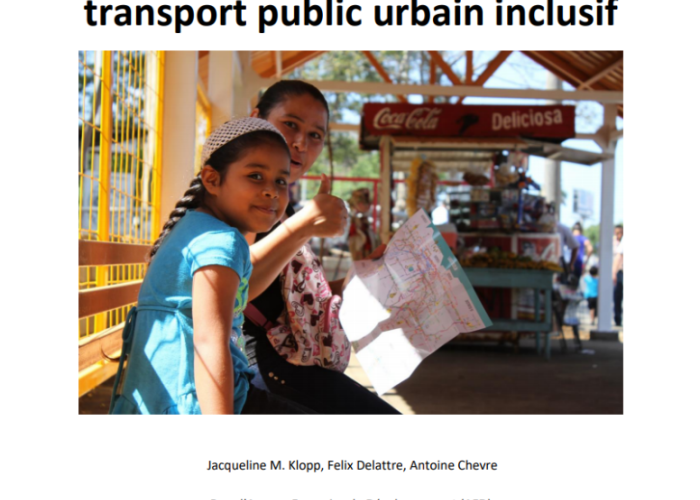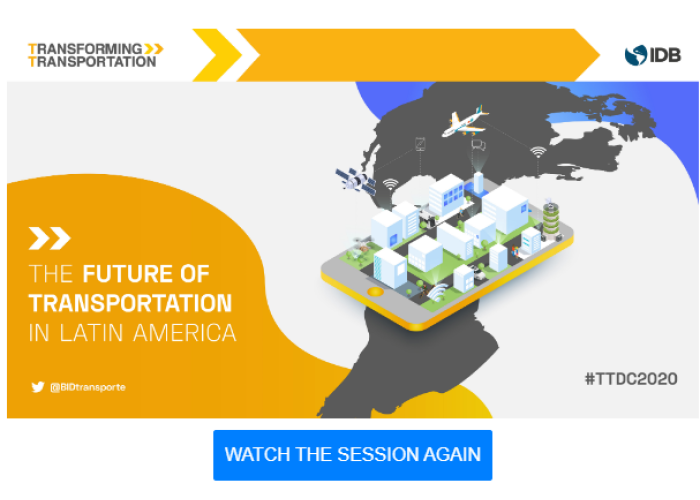Open Data for Inclusive Urban Public Transport Globally - Paper Digital Transport 4 Africa
Jacqueline M. Klopp (Columbia University- NYC USA) , Felix Delattre (OSM activist), Antoine Chevre (AFD)
https://www.digitaltransport4africa.org/covid-19-hit-public-transport-users-hard-heres-how-open-data-a-digital-commons-approach-helps/
COVID-19 has revealed how open data, that can be freely used and distributed by anyone, is critical for the recovery of our health and cities. At the start of the pandemic, Chinese scientists released the COVID genome sequence on GenBank, an open access data repository. Within a week, laboratories in China used the data to develop diagnostic tests. According to the WHO, sharing data and open collaboration is necessary for developing a vaccine. Open data also builds public trust and allows cities to implement sanitation and socially distancing measures necessary for protecting public health.
COVID-19 hit public transport users especially hard. Public transport systems around the world have seen up to 90% drops in ridership, massive revenue losses and service cutbacks. In Addis Ababa, Ethiopia—where nearly a third of the population relies on public transport, including paratransit—the city has ordered buses to run at half-capacity to accommodate social distancing. To compensate for empty buses operators hiked up fares, putting additional financial strain on poor and essential workers.
DigitalTransport4Africa’s latest report for the French Development Agency (AFD) explores how open data helps build safe, inclusive and quality public transport for everyone and allows cities to measure progress toward global climate mitigation and Sustainable Development Goals. It also hints at solutions for public transport’s post-COVID recovery which can help boost ridership.
Open data helps public transport operators cut costs and foster innovation that makes public transport more usable for everyone. Transport for London’s (TfL) open transit data permitted entrepreneurs to develop quality, cost-effective products. TfL calculated that apps powered by TfL’s bus data will deliver £83 million in customer benefit over 10 years, at a cost to TfL of just £820,000. In 2012, TfL had over 5,000 registered developers, 362 apps powered by TfL data reaching 4 million people resulting in an estimated £15-£58 million value of time saved by app users.
Open public transport data also helps city planners identify coverage gaps in bus services and plan mobility solutions for neighborhoods with poor accessibility to food, healthcare and other essential services.
While investing in open data is a win-win for public transport’s post-COVID recovery and our global goals, many parts of the world do not have even the most basic data on existing public transport systems or the data are inaccessible. World Bank estimates 35% of the world’s largest cities and 92% of the largest low- and middle-income cities do not even have complete transit data. Lack of data handicaps public authorities’ ability to plan and regulate transport services. It makes it difficult for users to navigate the bus network and for communities of practice and entrepreneurs to innovate and improve upon the system.
Lack of data also jeopardizes our ability to monitor and promote the 2030 Sustainable Development Goals.
Fortunately, for those cities without transit data, our days searching aimlessly for a bus stop may be coming to an end. Whether it’s students using GPS-enabled smartphones to map minibus taxi routes or using the resulting data to build open source trip planning apps or new models to rationalize service, transport authorities, universities and tech innovators are increasingly working together to improve public transport for everyone.
Still much more needs to be done to support a strong open data infrastructure. In our report, DT4A proposes a digital commons approach to increase collaboration across a growing network of actors aiming to improve public transport, promote integrated planning and innovation and spark shared dialogue, accountability and monitoring.
Recommendations include:
- Mainstream standardized open transport data creation in all transportation service and infrastructure development projects.
- Support data capacity-building within cities, universities and developers, encouraging cross-sector collaboration in developing passenger information systems, updating and maintaining data quality and linking this data to urban planning and SDG monitoring.
- Build data sovereignty and local tech ecosystems and innovation in cities as opposed to dependency on consultants and non-local companies for data needs.
- Use, invest in, share and widely disseminate Open Source tools.
- Build out GTFS-flex and other data formats that are inclusive to cities with on-demand, flexible mobility like paratransit.
- Form privacy and open data laws and public discussion of the ethics of data collection and use in all cities.
DT4A and DATUM represent a network of global, data-minded public transport advocates pioneering a digital commons approach to help push the dial toward a transit-oriented, safer, cleaner and healthier future.



